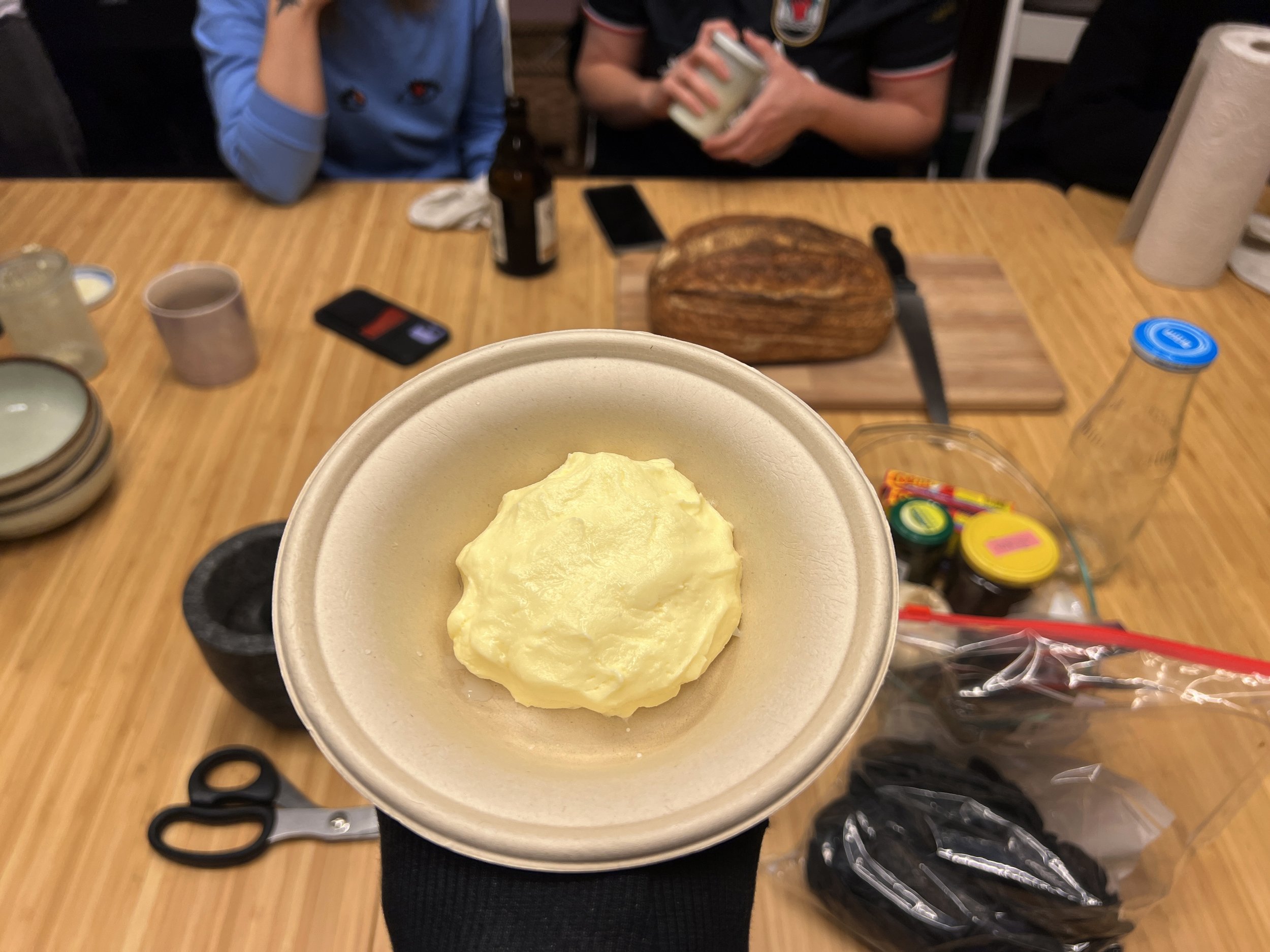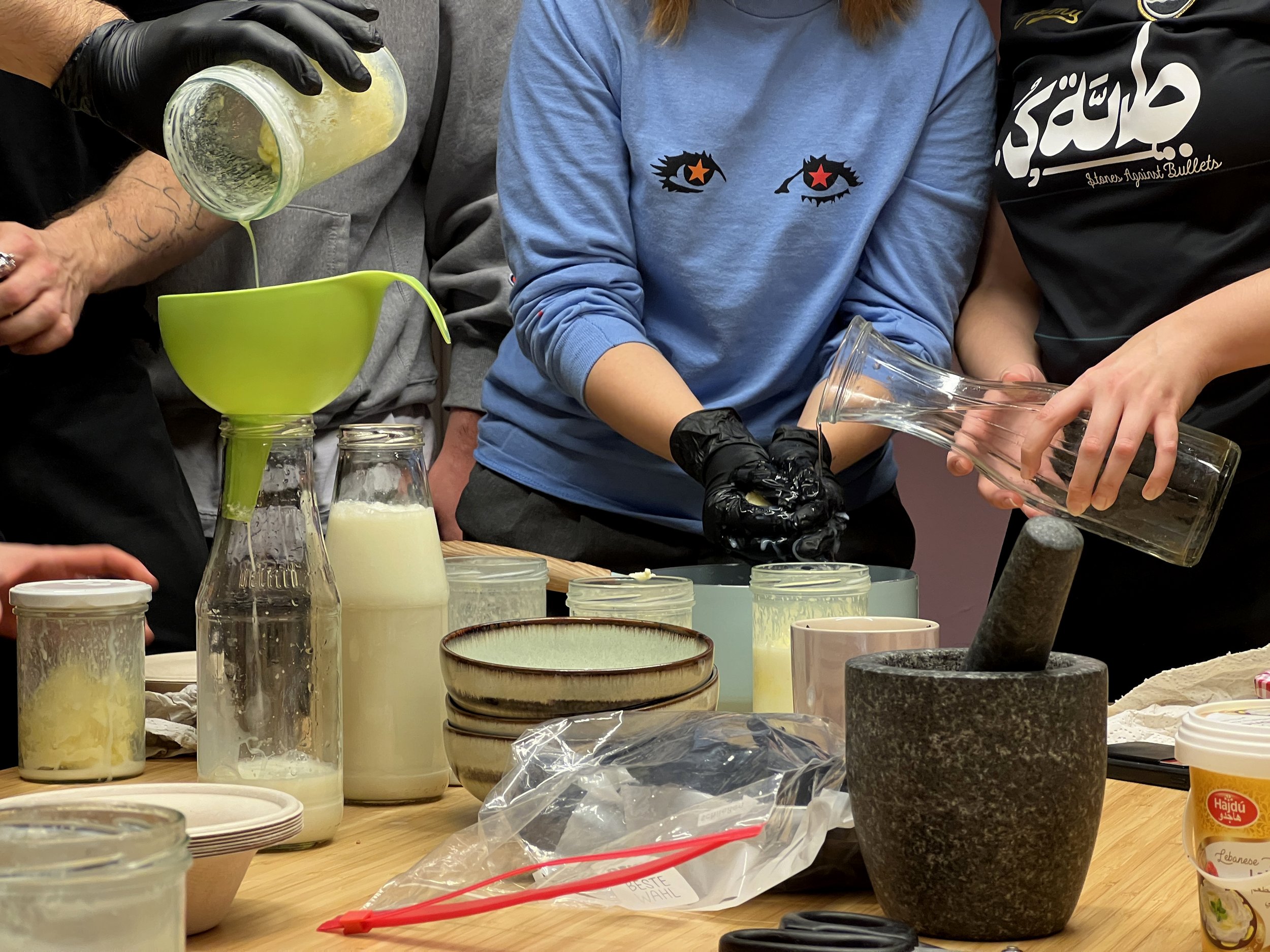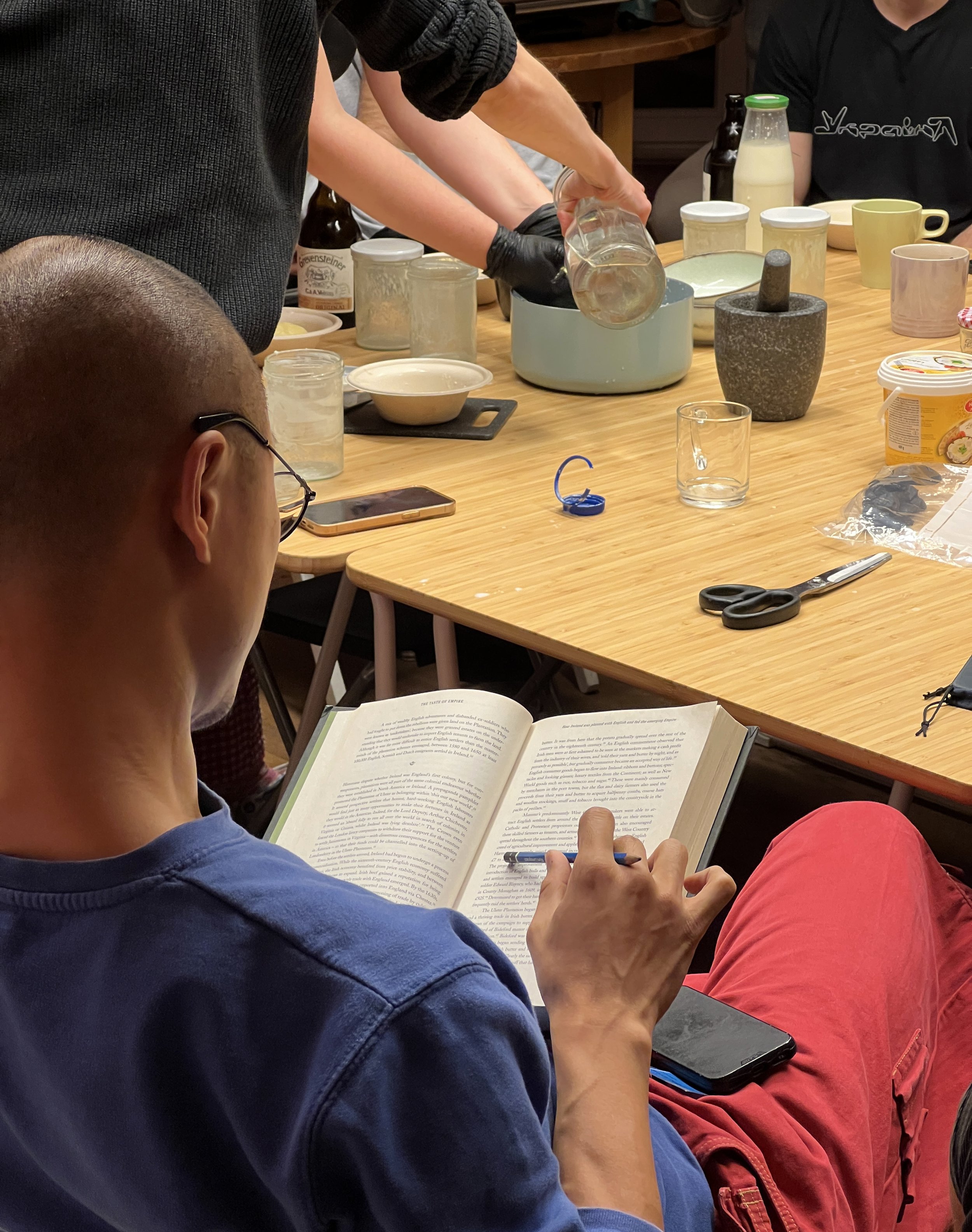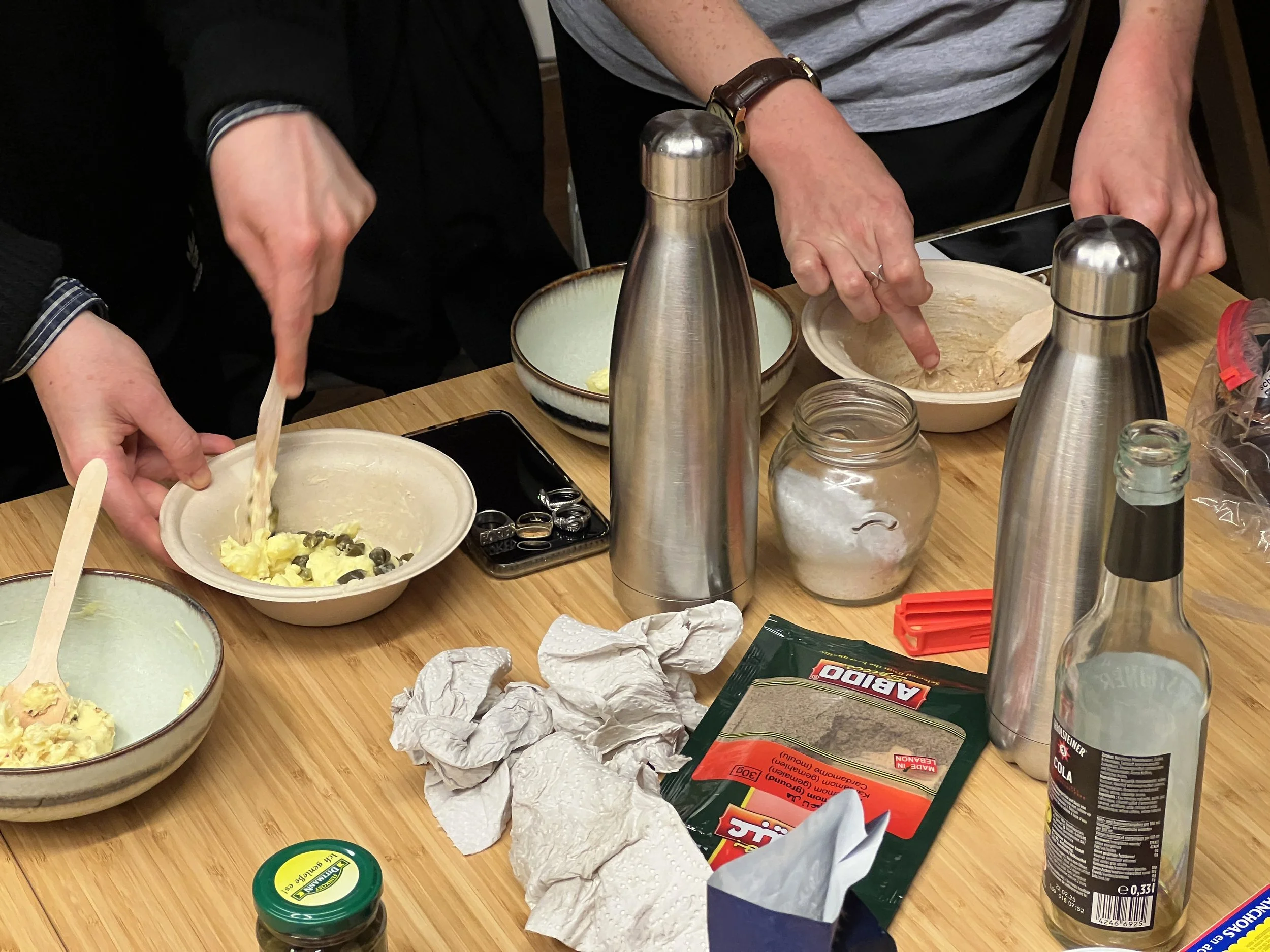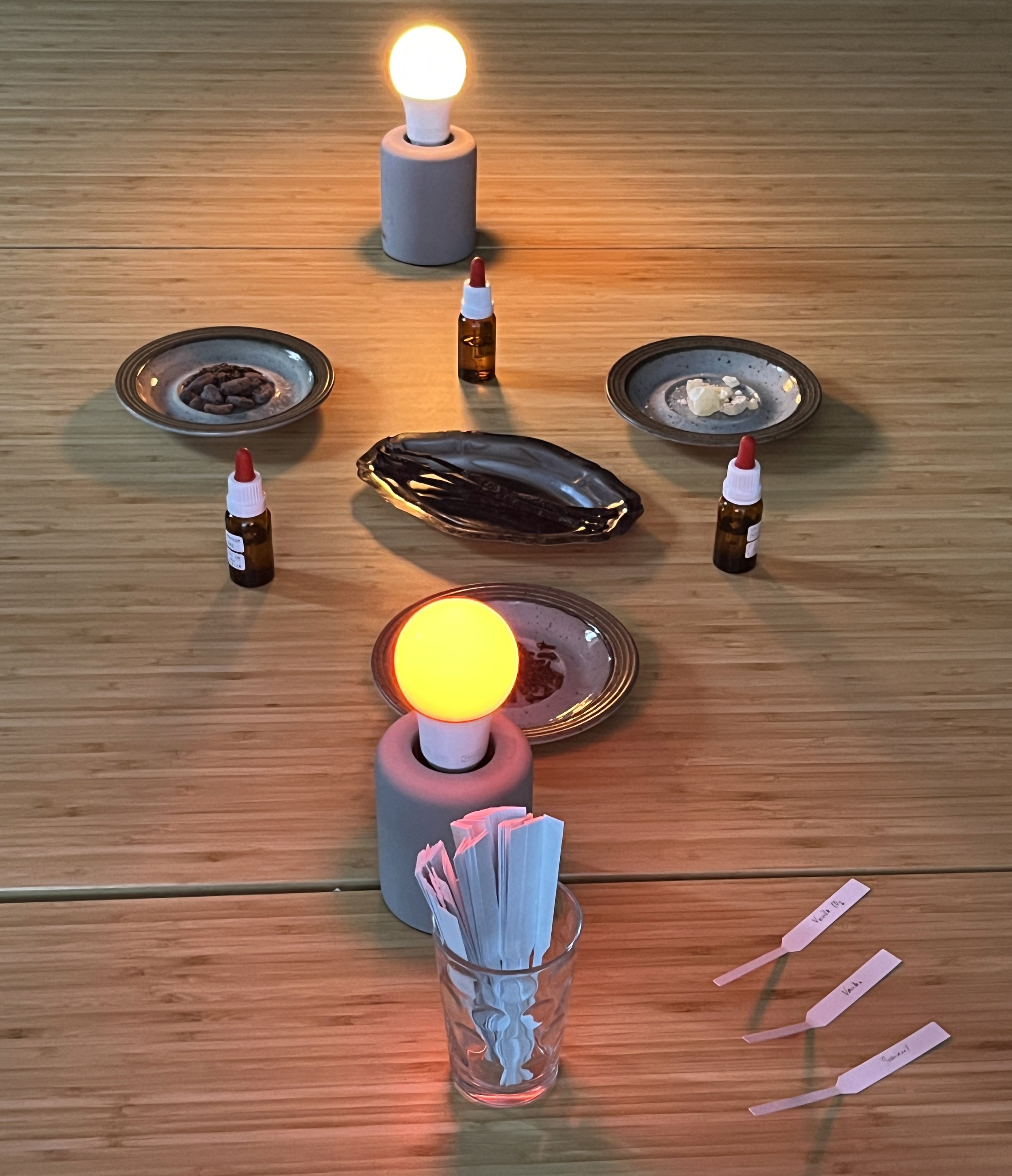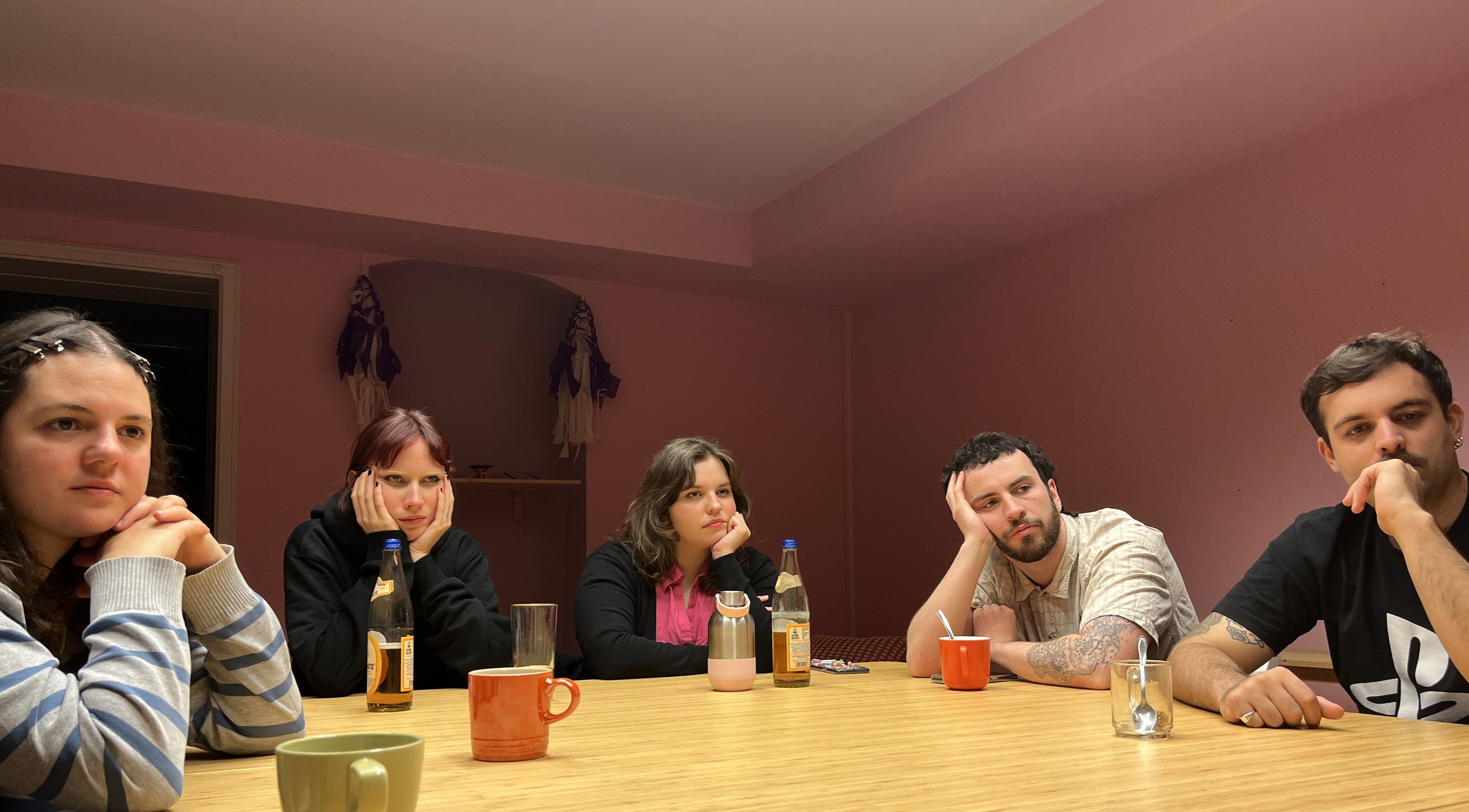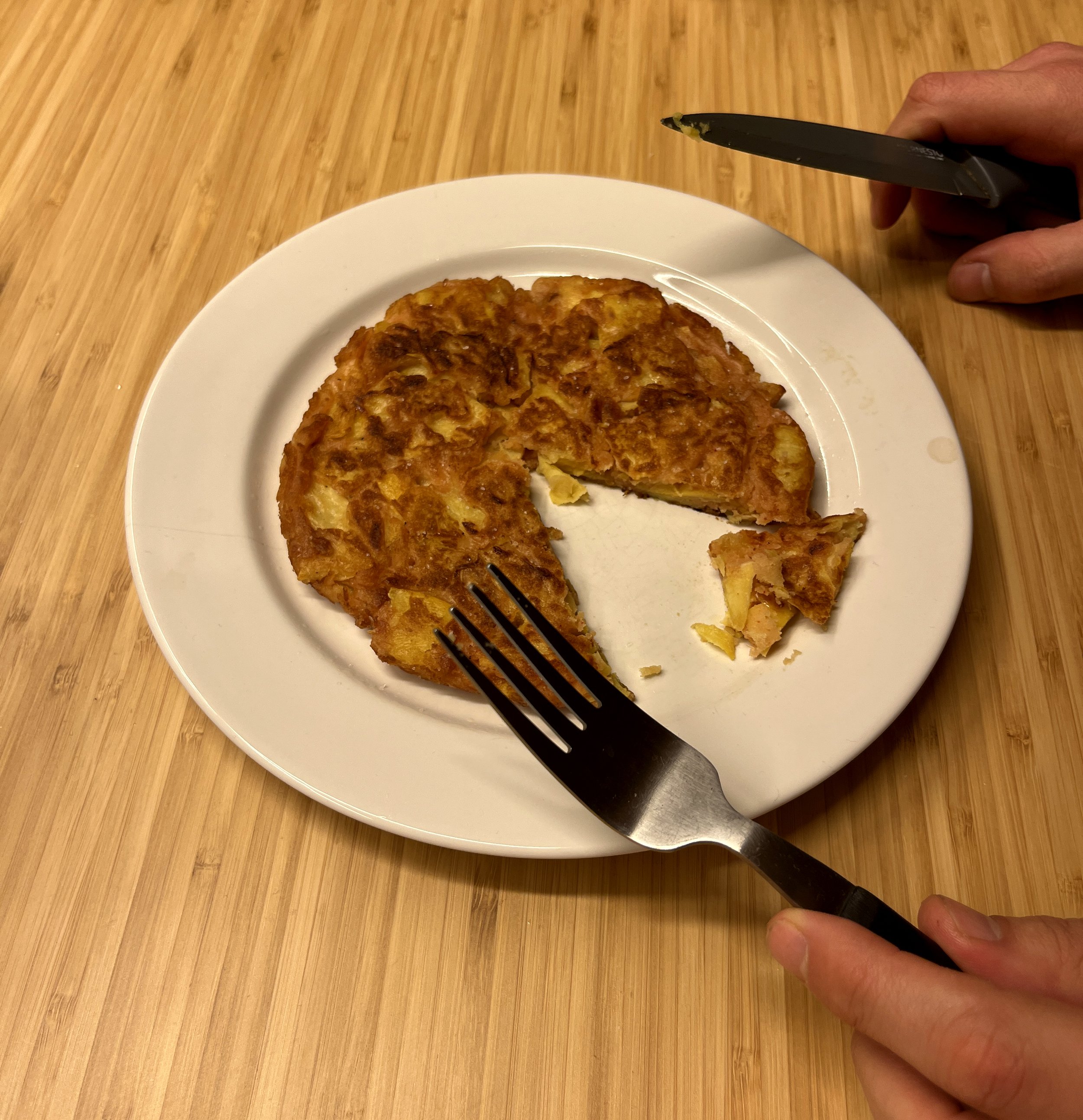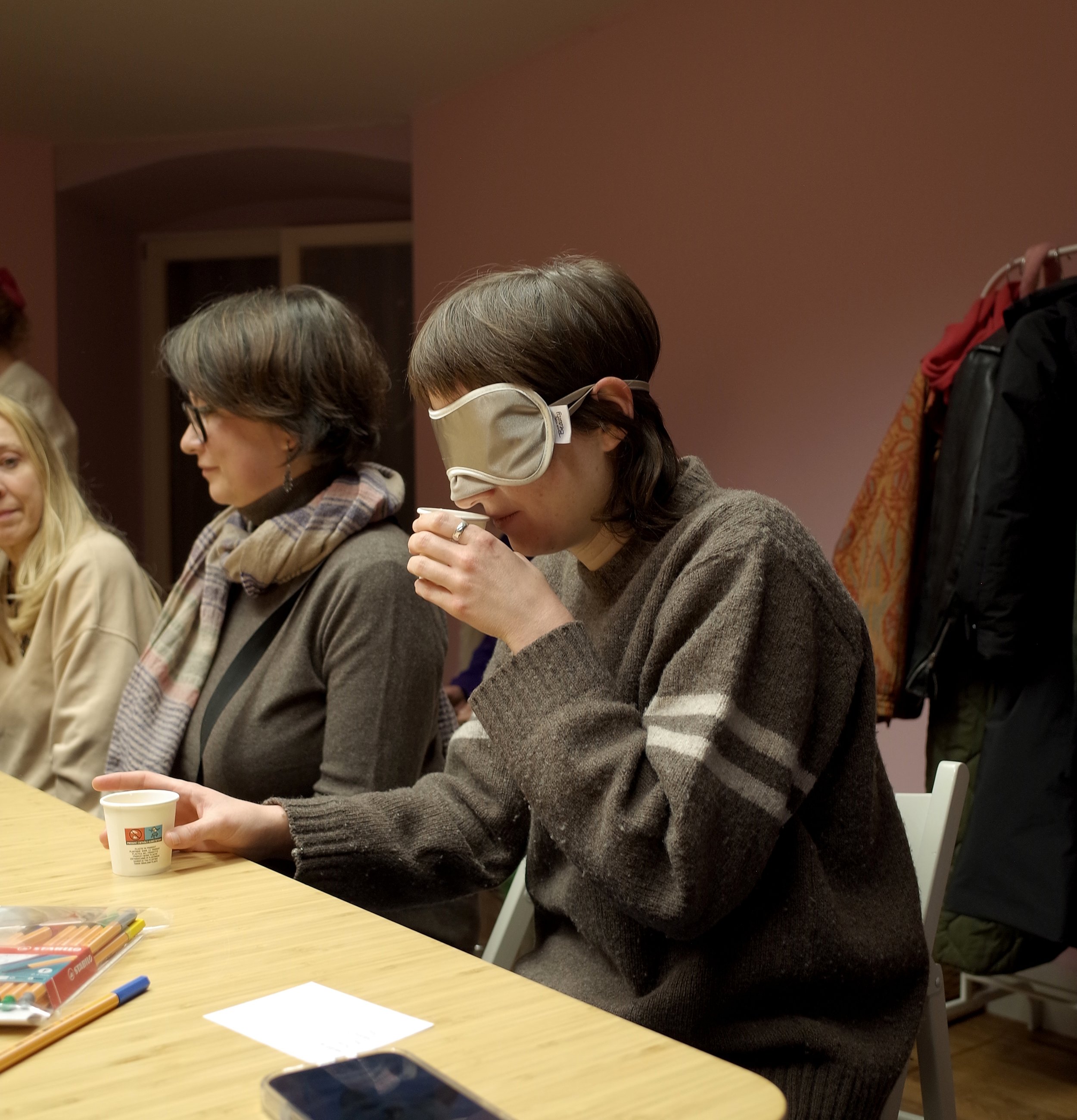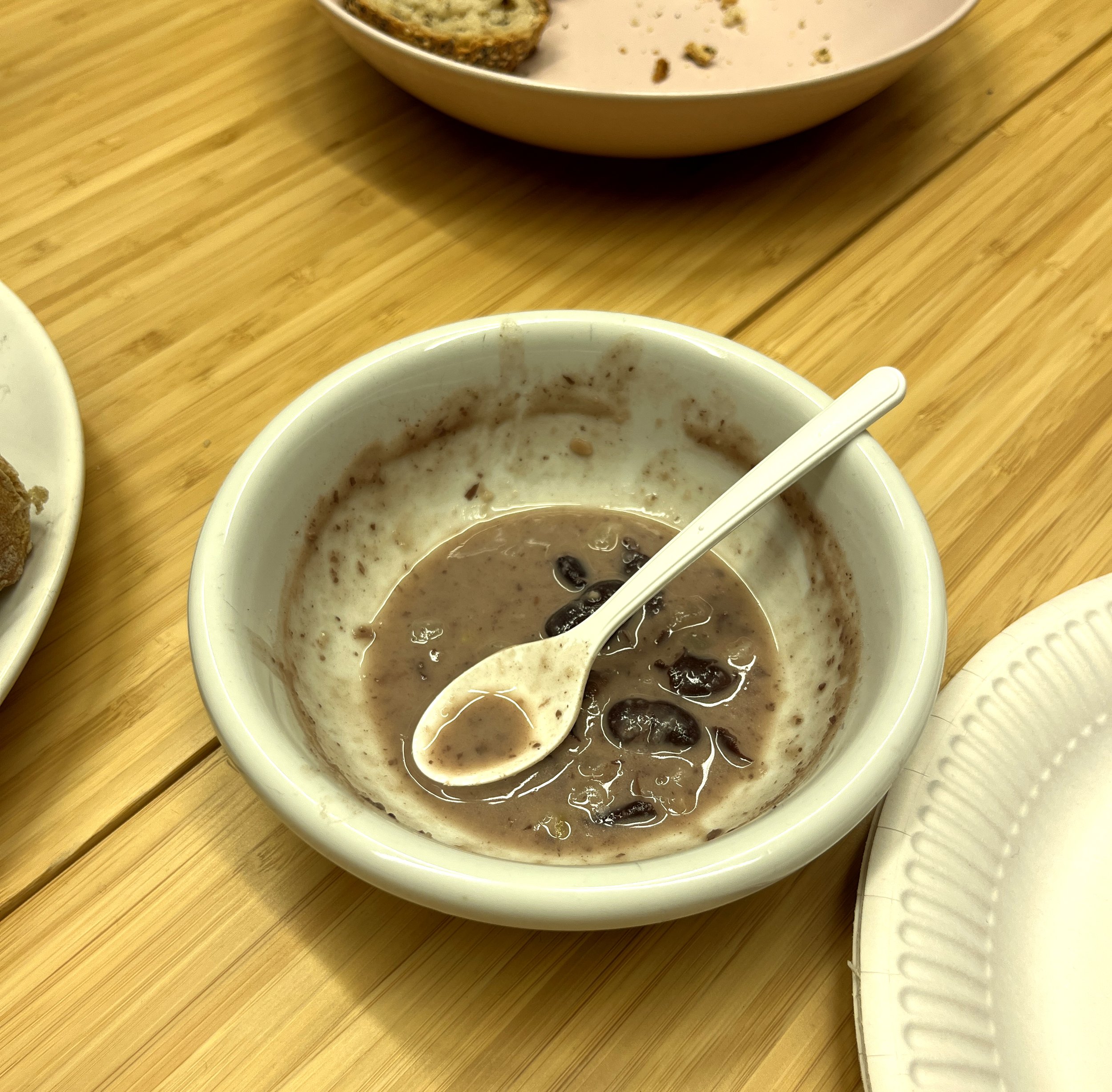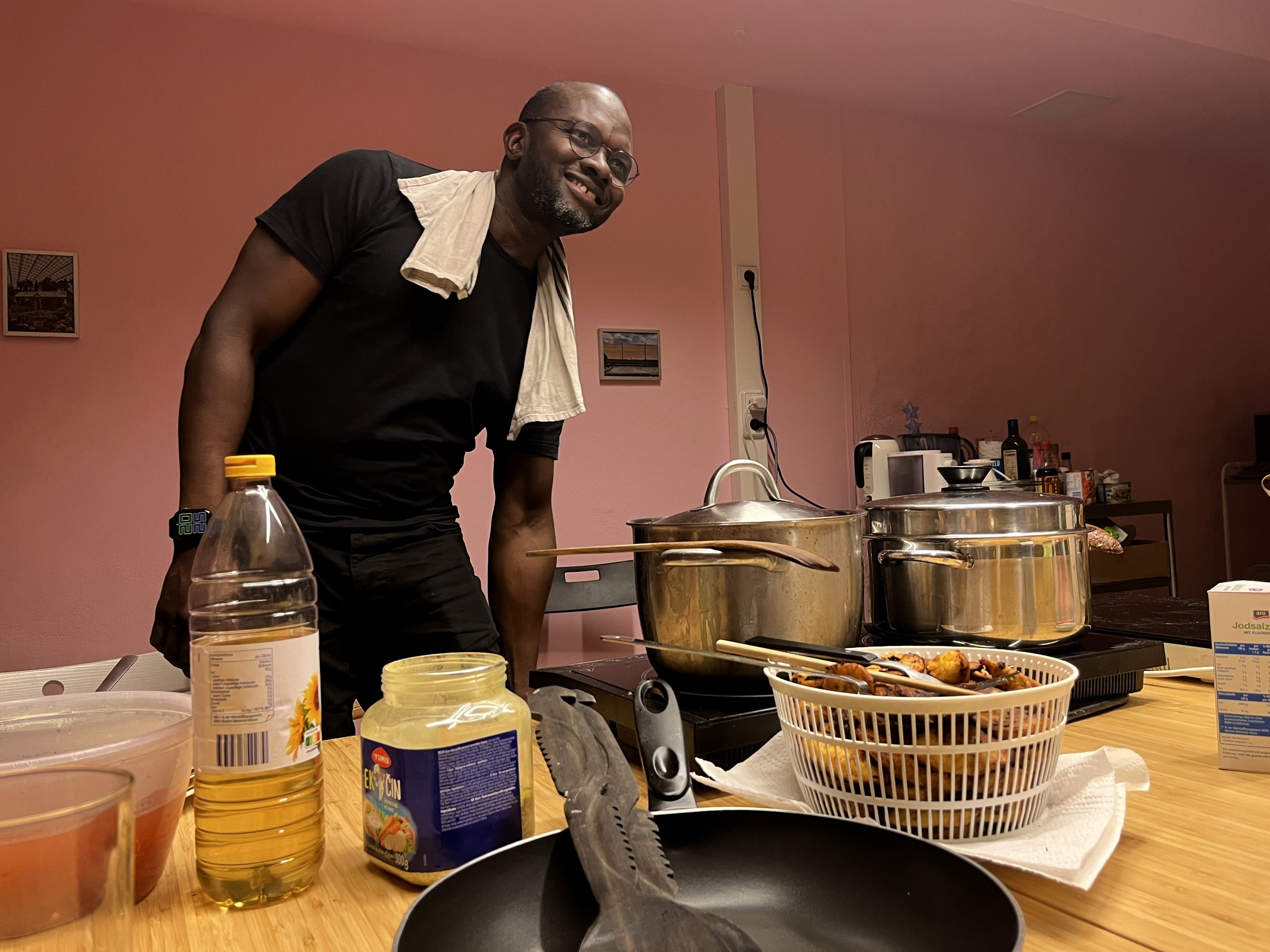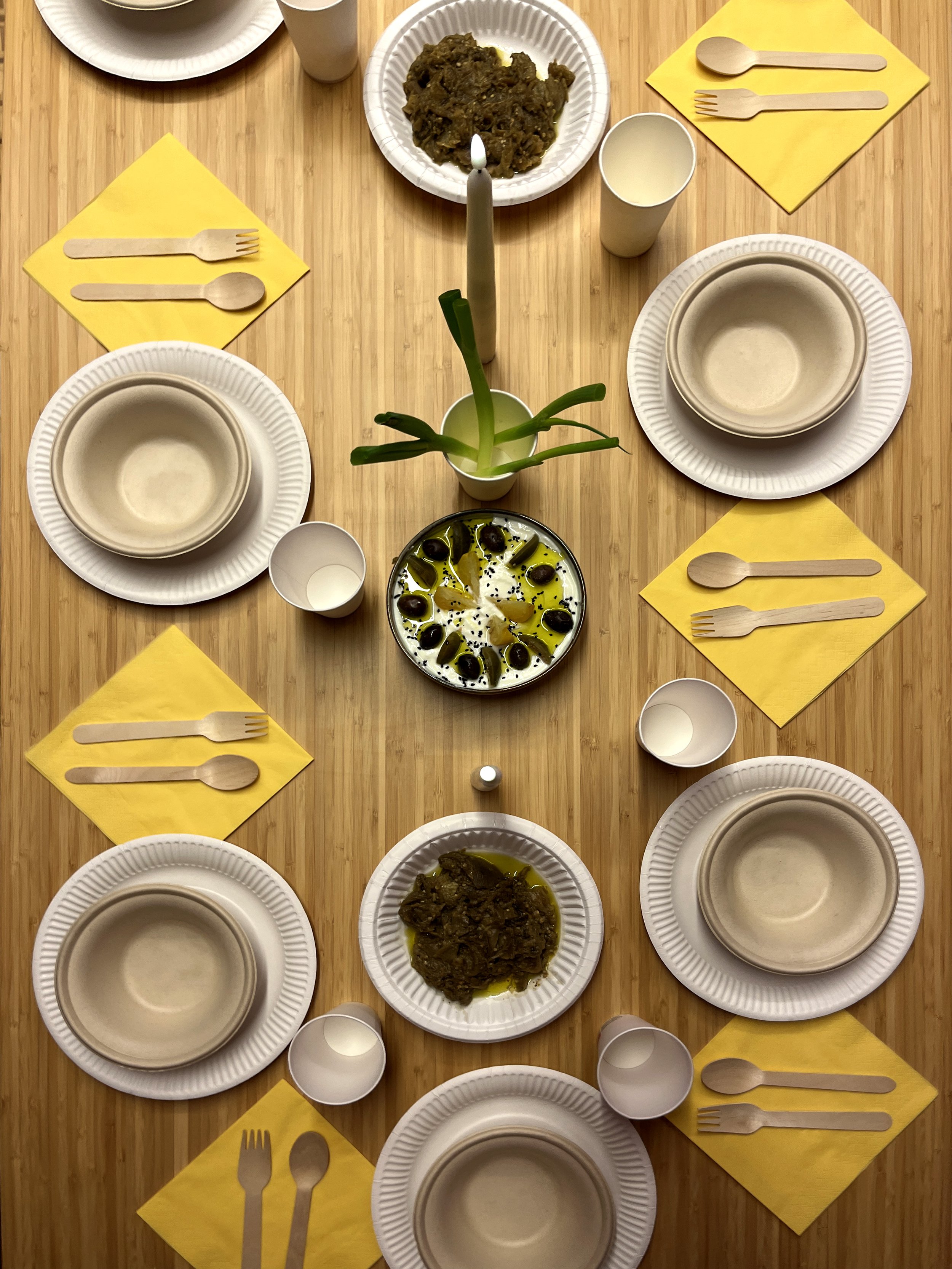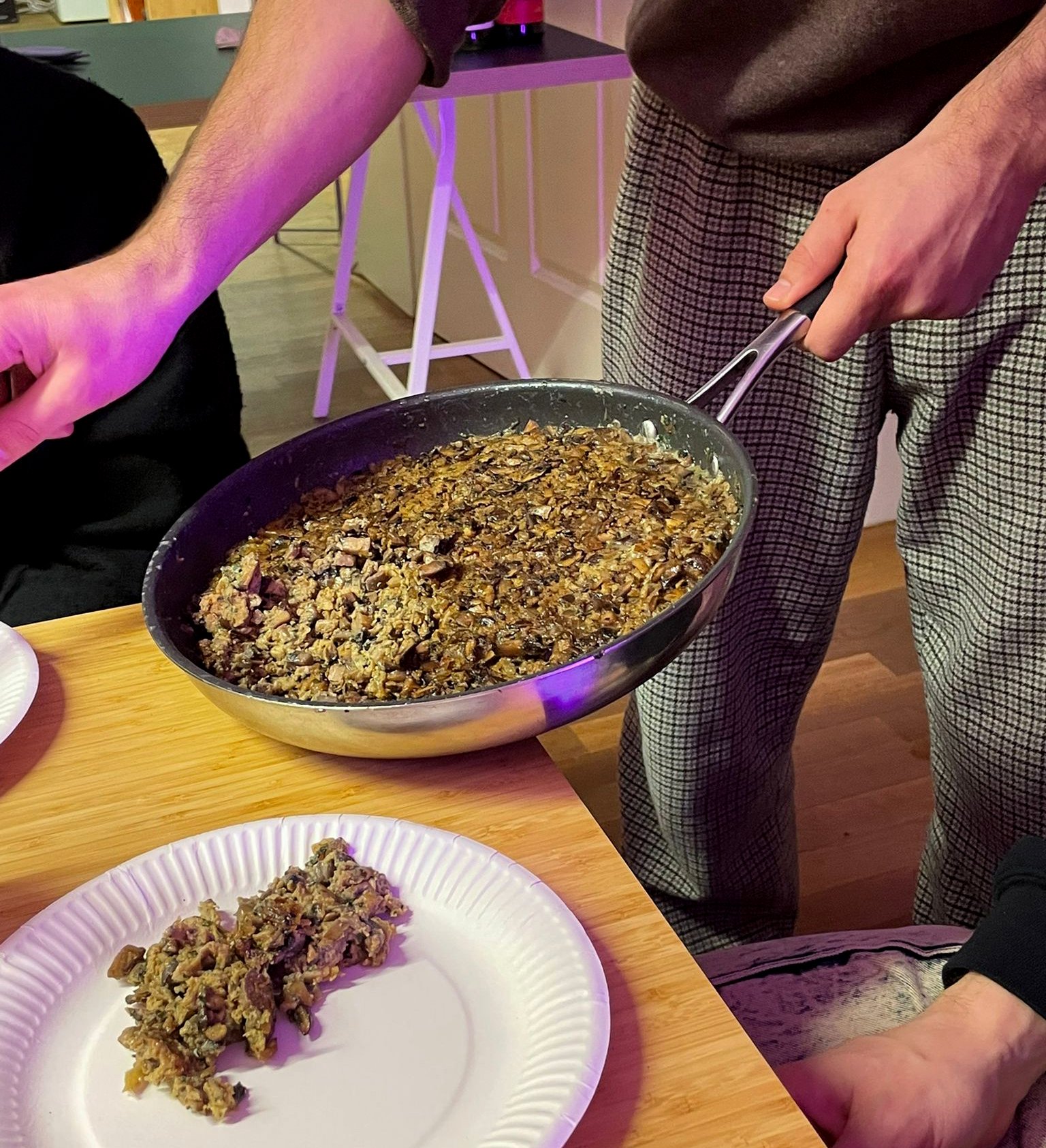IMBISS: A Working Group
“IMBISS: a working group” is a series of study groups, workshops and performances around the kitchen table that think food as that which is simultaneously life sustenance, a cultural ecosystem and a political product. Its curriculum looks at the intersections between eating practices, culinary histories, food production and trade, and global politics.
Each of the series’ sessions will focus on a different food item or practice and open up its political history. They will be looking at how these intersect with colonial histories, global capitalist trade routes, processes of racialisation, gender politics, economic uneven development, histories of revolutionary organising, and others.
This project is being developed with the support of the Rosa Luxemburg Stiftung.
Episode 1: 大豆 Soy
The first “IMBISS: A Working Group” session will be run by one of the members of the 摊摊豆花 Tantan Douhua collective, Tian Guoxin. The session will unfold histories of migration and their entanglement with the popularisation of soy products in the West. Episode 1 will be a deep dive into the racist and sexist history of the term "soy boy". The session will take form of a short 豆花 douhua (fresh "flower tofu") workshop, followed by its tasting.
25 September at 7PM
Episode 2: Butter/Im
The second “IMBISS: A Working Group” session, by Hannah O’Flynn, will explore butter’s entanglement in the British colonisation of Ireland. Episode 2 will be a collective butter making workshop for which Liu Chao will read historical text fragments on the history of how British colonialism made of Irish butter an export product and key element of a triangular trade that connected it to the cod producing colonial project of Newfoundland, the Caribbean plantations and the slave trade.
2nd October at 7pm
Episode 3: Vanilla
The third “IMBISS: A Working Group” episode, led by marc norbert hörler, will be focusing on vanilla. The workshop, which will focus on vanilla as an olfactory material, will explore its histories, its colonial and chemical extraction, as well as aspects of its cultivation. We will also be discussing its mass production for perfumery and cuisine, while we smell different extracts and evaluate them.
marc norbert hörler has developed this research with the support of Pro Helvetia.
Episode 4: A Cookbook of Hunger
The fourth “IMBISS: A Working Group” session, organised by Pablo Giménez Arteaga, will look at the histories of the famine that followed the Spanish Civil War. We will delve into the politics of the blockade and rationing periods, focusing on oral history testimonies and the inventive survival recipes from that time. The episode will finish with the tasting of a recipe created out of the limitations of the period.
Saturday 19th of October at 3pm
Episode 5: Luxury
The fifth “IMBISS: A Working Group” session, organised by Vita Buivid, will look at the notion of luxury through a true symbol of it: champagne. We will discuss different types of constructions of luxury, — capitalist and communist — while blind testing both original and soviet champagnes. During the workshop, we will produce a notorious “fake champagne” using a soviet time recipe.
Monday 4th of November at 6pm
This event will discuss and serve alcohol. Any guests who are interested in the topic but do not drink alcohol are welcome to join.
Episode 6: Beans
The sixth “IMBISS: A Working Group” session, led by Luiza Prado, follows the trajectory of the common bean, Phaseolus vulgaris. Originating in the territories of Turtle Island and Abya Yala, and transported through colonial trade routes, the species made its first documented appearance in Europe in 1508. It has, since then, spread to every landmass on Earth, becoming a crop of major economic significance, selected and bred into hundreds of distinct varieties. During the workshop we will taste and examine three bean dishes to uncover how these seeds and their circulation encapsulate and materialise affects that cut across time and space, proposing new conceptions of planetary, multi-species intimacies, and challenging conceptions of territorial and cultural purity.
Episode 6: Beans builds on “The World is a Mill”, a collaboration with Dani Admiss
and a partnership with Radar, Loughborough University.
Monday 11th of November at 6pm
Episode 7: Jollof Rice
Jollof Rice – Ghana or Nigeria? The seventh session of the IMBISS Working Group will be led by Abdel Amine Mohammed. The session will introduce the debate surrounding the preparation of jollof rice, a dish originating from Ghana, Nigeria, and other West African countries. Rather than being a matter of contention, the debate can be seen as a light-hearted competition of hyperbole and wit. This spirited discourse reflects the shared origins and cultural fluidity of West Africa, where geographical boundaries are not as rigid and traditional practices intermingle. However, beneath this culinary pride lies a more profound narrative of rice, slavery, and emancipation, which has been largely eclipsed by discourses surrounding cotton and plantation nostalgia.
Wednesday 27th of November at 7pm
Episode 8: al-Andalus
The eighth and final session of “IMBISS: A Working Group”, led by Pablo Giménez Arteaga, Lúa Pérez, and Hannah O’Flynn, will explore the culinary history of al-Andalus. This session will take the form of a dinner that brings together dishes from both the Muslim and Sephardic Jewish culinary traditions of al-Andalus. With it, we will open up the history of the Catholic Crown’s Inquisition, and examine how the persecution and expulsion of Muslim and Jewish populations can be traced through changes in culinary traditions, as well as the construction of the so-called “traditional Spanish diet”. The collection of dishes featured in this session will also illuminate the significant impact of colonisation on the contemporary Spanish diet, revealing how its culinary identity has been shaped by a history of brutal colonisation as well as the demonisation and persecution of Muslim and Jewish traditions.
Saturday 14th of December at 7pm












